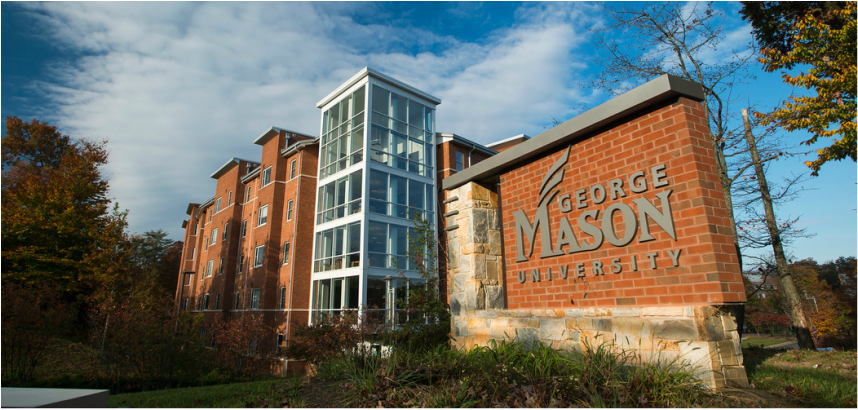Contact Info
Email: Averi Jordan at ajorda22@gmu.edu
Come explore some of today's toughest problems through the lens of peace and conflict resolution. Spanning four days and three evenings on the George Mason University Campus, students from varied backgrounds with common interests and goals connect to gain new perspectives.
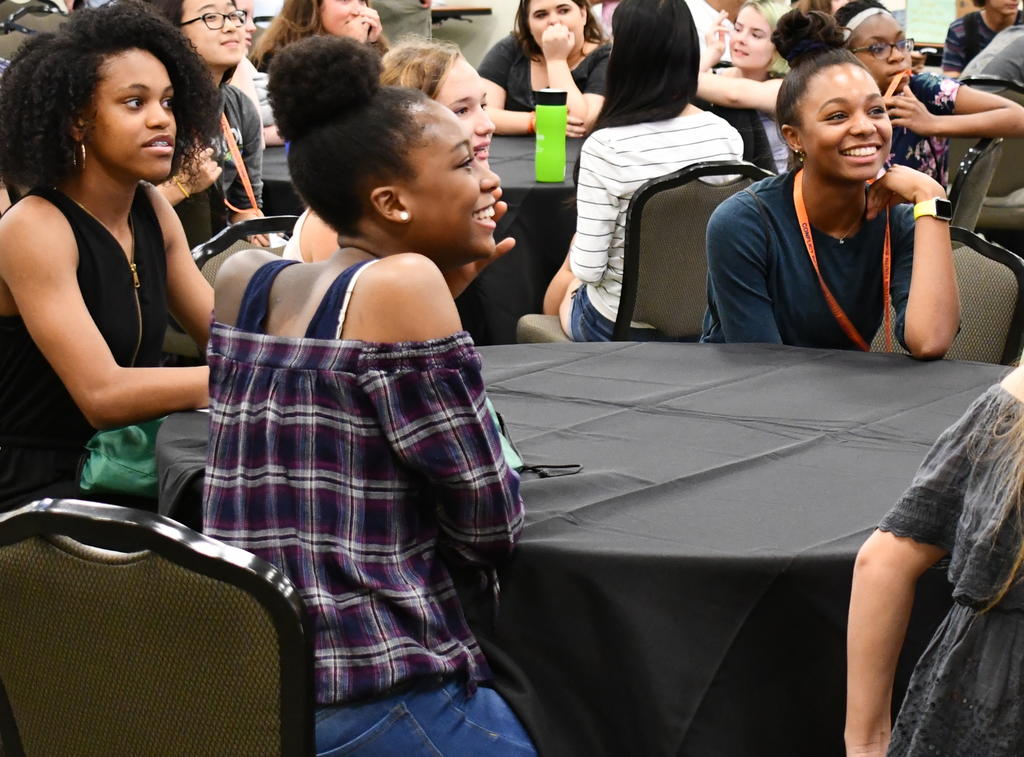
Delve into important conflicts, learn new skills, practice the processes of promoting peace and engaging with tough issues to make a positive difference. Join us for an exciting cohort experience with your peers. Earn a college credit while engaging in simulations, workshops, and facilitated discussions. Explore issues related to:
-
Global Conflicts
-
Social Justice
-
Conflicts within Relationships
-
Peacebuilding
-
Collaborative Leadership
Through the experience you will gain skills in leadership, cross-cultural understanding, and community engaged dialogue as well as build relationships and make new connections while exploring possible opportunities to work in the area of peace and conflict resolution.
Offered by the Carter School for Peace and Conflict Resolution at George Mason University, a preeminent leader in innovative teaching, cutting-edge research and engaged practice.
Dates
Dates: July 24-27, 2024
Program Costs
- $750 which includes 1 college credit (CONF 100)
- $650 program only
- Need-based scholarships are available. Applications for scholarships will be available after you've been accepted to the program.
This is a four day (and three nights) summit that includes on campus lodging and all meals.
Qualifications
- Rising high school 10th, 11th, and 12th grade students
- Interest in leadership, social justice, and/or community engagement.
How to Apply (2024 applications open Feb 15)
Priority Deadline to apply is April 22, 2024. Applications accepted on a rolling basis thereafter.
2024 Application is available now.
Meet our 2023 Staff
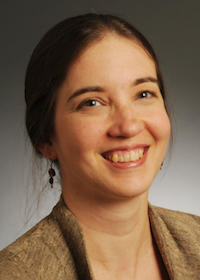
Mara Schoeny, Executive Director
Mara is the director of the School for Conflict Analysis and Resolution's Graduate Certificate and Undergraduate Programs and is an associate professor. She teaches courses in research and evaluation methods, practice skills, and the integration of interdisciplinary approaches to conflict analysis and resolution. She was a 1998 USIA Visiting Fellow in the Curriculum Development Exchange Program in residence at Yerevan State University, Armenia. As part of the grant she developed and taught simulation courses for undergraduate and master’s level sociology and social work students in family, organizational, political, and community conflict. She is a former youth camp director with experience in traditional camp settings as well as dialogue and co-existence camps for youth from conflict areas. Her research and practice interests include nonviolence, education, and training and dialogue processes.
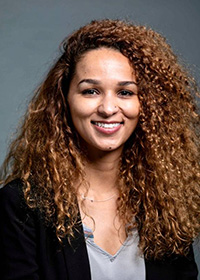
Fatma Jabbari, Program Director
Fatma Jabbari is a Ph.D. Candidate in the Carter School. She is a Fulbright FLTA (Foreign Languages Teaching Assistant) Alumna scholar for the academic year 2014-2015, hold a BA in English (2010) and an MA in Communication (2013) from the Higher Institute of Languages in Tunis-Tunisia. Fatma is currently writing her dissertation focusing on the intersection between security and local ownership. She has also been working in different roles at the Carter School in teaching and research capacities. Fatma speaks Arabic, French, and English. She likes traveling and enjoys culinary discoveries and adventures around the world.
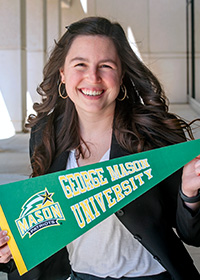
Averi Jordan, Program Manager
Averi Jordan is an Advisor and Recruitment Coordinator. Her advising focus is all things admissions related including transitioning into the major, programs and opportunities at Mason, and student involvement. Averi loves assisting students in their academic journey and providing them with the resources needed as they move toward careers. She was born and raised in Texas and has loved exploring the northern Virginia area – especially all the great restaurants! Averi’s favorite pastimes are hanging with her friends, baking, or reading a fiction book!
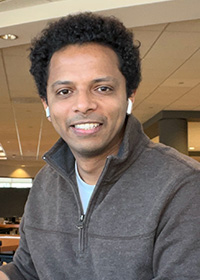
Amr Salah Mohamed, Program Staff
Amr Salah Mohamed is a graduate lecturer and Ph.D. Candidate at the Carter School for Peace and Conflict Resolution at George Mason University. His research interests focus on Middle East’s conflicts with particular emphasis on the Egyptian case. Before joining Carter School, Amr was a Research Fellow at Peace Research Institute Frankfurt (Germany). He has numerous contributions to Arab journals and newspapers, Carnegie Endowment for International Peace, The National Interest, Washington Institute for Near East Policy, and Freedom House.
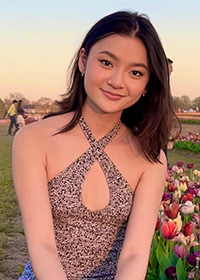
Madison Vuong, Program Staff
Madison Vuong (she/her) is a rising sophomore majoring in Conflict Resolution at George Mason University’s Carter School for Peace. As an undergraduate student, she is currently working towards an Accelerated Master’s with a concentration in Building Peace in Divided Societies. Madison is aiming to be a part of the Peace Corps once she graduates. As for extracurriculars, she is active in GMU VSA and FCA, and will be serving as membership chair for GMUVSA in the 2023-24 academic year. Because she was born and raised in Vietnam for ten years, she is heavily involved in the Northern Virginia Vietnamese Community, whether it be volunteering at Lunar New Year Festivals and other local Vietnamese events, or teaching Vietnamese to elementary school students at St. Veronica’s Catholic Church every Friday. In her spare time, she enjoys going to concerts with friends, baking, hiking, and playing WordHunt!
Frequently Asked Questions
What are you looking for in an applicant?
We are looking for rising Sophomores, Juniors, and Seniors who are eager to participate in a hands-on learning experience on a college campus.
Do I have to be interested in the field of Conflict Analysis and Resolution to attend this summit?
No, we believe that the skills and experience that you will gain from this summit are versatile and transferable to anything you put your mind to.
Is transportation provided to and from the program?
No, daily transportation to and from the program are not provided.
What is a typical day like?
Students will attend hands-on seminars, participate in simulations and collaborate together to work on various projects.
Who are the people running the program?
This program is led by the professional staff and faculty of George Mason University’s Carter School for Peace and Conflict Resolution.
Is this a good program to put on a college application?
Yes, this program is a great opportunity to highlight academic and co-curricular experience.
Is this program a gateway to George Mason University admission?
The CR Youth Summit is a recognized university activity but does not guarantee admission to George Mason University.
What is the staff - student ratio?
The ratio is 1 staff per 10 students.
Who can I contact if I have additional questions?
Email us at crys@gmu.edu
George Mason University
George Mason University is Virginia’s largest public research university. Located near Washington, D.C., Mason enrolls 35,000 students from 130 countries and all 50 states. Mason has grown rapidly over the past half-century and is recognized for its innovation and entrepreneurship, remarkable diversity and commitment to accessibility.

